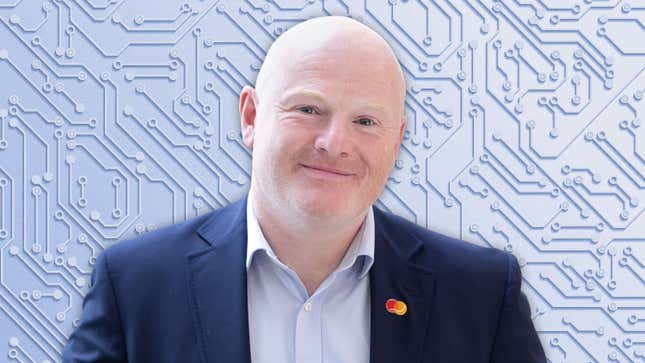
Since the emergence of stablecoins and non-fungible tokens (NFTs), tokenization technology has become an important part of the discussion about the future of payments.
Why tokenization? If a company creates a token on a blockchain with a unique identifier, that company can tie ownership rights to the token and allow customers to trade the token much faster than they could an illiquid asset like real estate or art.
Tokenization can represent tangible assets—like luxury automobiles—or intangible assets like patents and customer data. Mastercard recently has begun trialing tokenized bank deposits in the UK, with the intention of experimenting with stablecoins and central bank digital currencies.
These experiments are part of what Mastercard is betting will be the future of money. Mastercard chief innovation officer Ken Moore spoke with Quartz recently to discuss tokenization and other developments he expects to emerge in payments innovation over the next decade. The following conversation has been edited for clarity and length.
Quartz: How do you think about the potential for tokenization versus something like a fund? We have real estate funds for retail investors. How do you think tokenization might differ from other investment vehicles?
Ken Moore: Between now and the end of the decade, I think the whole concept of value exchange is just going to broaden. You could argue crypto and NFTs have kind of represented the types of assets that we want to exchange with each other. As I look farther into the future, I see central bank-issued digital currencies, and I also see data as an asset class that we will want to exchange.
Tokenization also creates interoperability. Tokens have standards and therefore it enables the existing ecosystem and the new ecosystem.
What role does Mastercard play in bringing us to that world?
Probably a couple of roles. We’ve always talked about the need for safety, security, and consumer control, interoperability, and standards that enable people to exchange cash. We’ve been tokenizing card numbers for a long time. We can see a logical path to not just tokenize card numbers, but why not tokenize account numbers, identities, data—but create that same safety and network effect around it as well.
When you look at the different digital wallets that exist—Google Pay, Apple Pay, Paypal, Venmo—how do you see that product playing out?
I would even extend the range of wallets you mentioned there to include other wallets, like the wallets you have from car companies, like Tesla, [which] has a wallet to help you unlock, open, and start your car. I think that the wallet for the future will emerge, but I don’t think one wallet will win.
Another idea Mastercard has around the future of payments is borderless payment rails. When are we going to be able to get cross-border transactions that are free?
You’re right to say there are barriers to cross border payments today, and some of those barriers are artificially erected. Between now and the end of the decade, I think we’ll see some of those digital world barriers drop in the context of cross border payments, and I would watch Europe and other countries to lead the way from a regulatory perspective.
So now I want to play a game where I go through a list of tech trends, and you tell me if they’re under-hyped, overhyped, or appropriately hyped
Go for it. This is the fun part!
First, AI chatbots—or large language models. What do you think?
A little bit overhyped at the moment? I think there’s equal parts excitement and fear and that’s playing out. I see an opportunity in the short term to do what we do today but in a more effective and efficient way. As we move into creating new experiences, I think we’ve got to be thoughtful and have a principled approach.
Cryptocurrencies
At the moment, appropriately hyped. I think it was massively overhyped and a promise that was just around the corner for 10 years, whereas now we have a little bit more balance.
Delivery drones
At this point in time, under-hyped. I would have said over-hyped a couple of years ago. The reason for that is I don’t hear as much about it when I’m seeing some really practical use cases emerge.
Embracing failure
I’m an advocate for test and learn, but I’m also an advocate for thoughtful risk taking. There is an appetite for failure at some level, but when you’re doing it in an unthoughtful way, it can have unintended consequences.